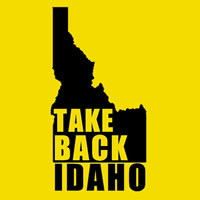Idaho Freedom Foundation’s “Don’t Say Vouchers Bill” — Round 2
The case for HB 447, the bill that would use public funds disguised as tax credits and grants to fund private schools, goes something like this: Parents have the right to determine what their school-aged children are taught and where they are taught. Idaho’s public schools are not only failing these children; they are exposing them to ways of thinking and learning that offend populist conservative values. These children will succeed and thrive only if taxpayer dollars are appropriated to subsidize educational alternatives that are more to their parents’ liking. If you’re looking for logic in the argument, you won’t find it. Same with unassailable facts. They aren’t there either. What you will find—unsurprisingly—are the same regurgitated tropes and boogeymen that have animated the Idaho Freedom Foundation’s and its allies’ assaults on public education for years.
Consider the following:
- Idaho’s public schools are hurting. That is a given. And despite recent efforts to raise the education scorecard—the embattled Launch Program being one of them—the state still ranks at or near the bottom in student per capita spending. Even worse, school infrastructure is crumbling throughout the state, and with it, the political will to do anything about it.
But public schools are not failing their students. As Don Coberly, Geoffrey Thomas, and Wil Overgaard pointed out in 2022, in response to similar legislative criticisms, public education in Idaho has achieved some notable successes, among them the National Assessment of Educational Progress’s findings that Idaho students’ average math assessment and reading scores were higher than their peers in California, Nevada, and Oregon, and not significantly different than the overall average scores of students in Montana, Utah, Washington, and Wyoming. Recent data also demonstrates that high school graduation rates and the percentage of students who go on to college and graduate are also rising.
These statistics are remarkable, not because they signal that Idaho’s public schools are where we should want them to be, but because they demonstrate that success is possible when parents, administrators, local school boards, and the agencies that oversee and guide the state’s public education system work together for improvement. Throwing out the system in favor of HB 447’s scattershot assemblage of taxpayer-funded private schools, micro-schools, and pod learning centers is not the answer. - Public education is not falling short because it is inherently flawed or no longer viable, as its critics contend. It is failing because the state legislature has for decades given short shrift to public school funding to favor tax reductions and rebates and, more recently, has acquiesced to the so-called “freedoms” of the state’s mostly ultra-conservative new arrivals, one of which, apparently, is the freedom to distance oneself completely from anything resembling common welfare or the common good. Proponents of HB 447 cannot have it both ways, which is to say they cannot shirk their constitutional obligation to sustainably fund public education and then point to the causal ill-effects of inadequate funding as evidence that public schools are not working and that publicly-funded private schools are the only solution to the problem.
- Quaint though it may seem, public schools and public education are still the backbone of learning and a healthy democracy—the common denominator, if you well, that brings students of differing economic, cultural, and religious backgrounds together to learn and learn from each other. Can anyone seriously argue that the toxic hyper-partisanship dividing Idaho and the rest of the country is somehow going to be cured by sending students to publicly-funded private learning silos whose curricula sacrifice history and truth for political propaganda and indoctrination?
This isn’t liberal/progressive hyperbole. HB 447 lacks any provision for measuring the efficacy of the alternative education that private school beneficiaries will supposedly be providing to their students. Stated more simply, there is nothing in the bill that requires these beneficiaries to measure student progress and learning or compare it to other recognized indices—the net result being that no one, least of all the affected students, will ever know whether the public funds supporting these alternative endeavors are wisely being expended and utilized. This lack of accountability is unprecedented and hypocritical. Why should publicly funded private schools be exempt from the metrics and measurements that guide our decisions to expend other taxpayer dollars? - If data from other states is any indication, a majority of those parents who can be expected to claim HB 447’s tax credits and grants are already sending their kindergarten through high school-age children to private schools. This suggests there is no unmet demand for private education, certainly, none requiring the level of public expenditure—now estimated to be $50 million or more in 2025 alone—that sponsors of the bill claim is needed to establish and sustain non-public education.
- Evidence from other states also suggests the bulk of these new publically-funder private schools will be “for profit” enterprises modeled on the learning platforms that Betsy DeVos, the discredited former education secretary, attempted to foist on the country during Donald Trump’s last flirtation with authoritarianism.
Do we really want an education system that ties our children’s achievements and success to someone else’s profits? HB 447 is only partially about the educational well-being of Idaho’s students. What it is really about is a further assault on the role of representative government in ordering our lives and our livelihoods—no different, really, than the other culture war bills snaking their way through the Statehouse that would censor learning, curb curiosity, marginalize students and parents living on the edges, and stifle the free exchange of information and ideas that are fundamental to discovery and progress.
The Idaho Freedom Foundation fears public education because the critical thinking it teaches and inspires threatens its power to control. Those of its allies who support and promote the bill are similarly motivated and, unfortunately, just as misguided.
